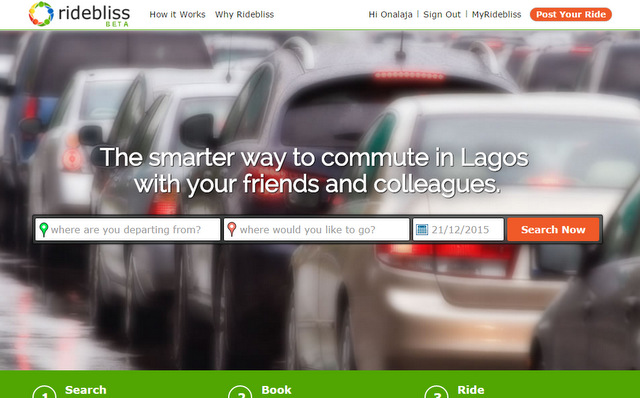The fact that you stopped by to read this probably means that you know more about APIs than I do. But humor me for a second, perhaps you’ll find out something worth your while.
First off, the title is an intentional misnomer, suggesting that we have made APIs out to be a bigger deal than they are, but it’s exactly the opposite; APIs are serious, maybe deathly so.
What are APIs?
Application Programming Interfaces. APIs is how software and internet products interact with each other.
The API allows developers create apps / products that interface with other web services or other software.
APIs are windows into code and software, because they provide access to a third party application without giving the third party a blanket pass to the core of its code. So, the API gives only so much access to a product as is necessary for it to execute specific and predefined functions.
Who builds APIs?
Most internet big leaguers – from Facebook to Twitter and search giant, Google – have official APIs that allow data flow into and out of their products. But anyone who’s got an application can build an API. As at the time of this writing, there are already over 13,500 APIs listed on ProgrammableWeb, a site that has been tracking APIs since 2005. Everyone and anyone can build an API which will open up to a parts of their application to external access and leverage.
Who needs APIs?
Developers need APIs to build applications that can integrate seamlessly with existing infrastructure, boosting the functionality of their app.
But APIs aren’t just for the benefit of developers, but owners of the platforms as well. Twitter without an API would hardly be as pervasive as it is now. And Facebook, which ran a walled garden for a while used an open API to get a leg up over MySpace in ‘07.
Essentially, everybody needs APIs.
Why are they important?
APIs are awesome because they allow different applications talk to each other, and even allow really creative developers create interesting things. Without APIs, a lot of apps and websites we now take for granted would not work the way they do, and the internet would be a rather shitty place. One simple example is how Uber uses Google’s Maps API to pinpoint a rider’s location and direct a driver there.
APIs in Africa!
If they exist, they are well hidden. Open and free APIs was the contention at the first API Saturday hosted by the GDG (Google Developers Group) in Lagos last month, and at the end of the event everyone quite agreed that Africans are not buying this sharing philosophy just yet. Africa’s internet ecosystem is not nearly as networked as it should or needs to be.
In theory, every internet business should have public/private (invite-only) APIs; telcos, MTN and their type, iROKOtv, Konga, Jumia, VConnect and…commercial banks maybe. But this hasn’t happened yet and on a macro level, the impact is that the ecosystem will grow at a slower pace than it already is.
No doubt these APIs exist — they are just usually private, or for internal consumption only. Internal APIs are designed for intra-organizational software communication, and the private APIs require an invite before it can be leveraged upon. Companies with Private APIs will only allow developers build on them after an idea-numbing amount of authorisations, and even in some cases, the need to fork out a sizeable amount of money. An example of that is the Nigerian Stock exchange raw data feed that costs $25,000 to deploy. And that’s not even a real API, just a firehose of information.
What Nigerian internet companies have public APIs?
In 2013, a contributor on the popular Nigerian online forum, Nairaland, Aito Ehigie, figured he could build an unofficial API for the platform only to get banned from the site for his trouble.
On the other end of the spectrum, Celestine Omin who now works with Konga also tried to jury-rig A RESTful API for the Nigerian Stock Exchange last year. A fantastic idea, to be sure, but apparently things have since quieted down.
A Nigerian startup, Tsaboin that gives real-time update of traffic in Lagos is the only Nigerian tech company we know of with a public API. We thought perhaps the API had since been deprecated, but Dele Odufuye, the company CEO, told TechCabal that the API is still open and a couple third party apps connect with with the Tsaboin server via its API.
How big can APIs get?
I am tempted to say APIs have gotten as big they can, but no, not in Africa they haven’t.
Governments can actually create websites with public APIs that can be built upon by developers. In a continent with a dizzying scale of corruption, Ministries of Finance – for starters – with an API that provides access to statistics on the country’s treasury will engender a kind of transparency never before seen in African politics. This is not hard to do, but it most likely won’t happen in our lifetime.
Things like these are already happening in the countries like New Zealand, Australia, the UK and in the USA where Obama issued the Executive Order 13571 in 2011, titled ‘Streamlining Service Delivery and Improving Customer Service’. The order compelled US government agencies to improve delivery of services through digital technologies. This saw some US government agencies such as the National Institute of Health, the US Army, and the Department of Homeland Security releasing open data sets.
Can APIs turn on you?
APIs can’t turn on you, not really, but those who design them can. Ask Meerkat. Few months ago, Meerkat which had built its whole operation on Twitter’s social graph, was left with a giant bald spot from endless head-scratching when Twitter deprecated that functionality and launched its own live streaming application – Periscope, not just for kicks, not because they are mean; it’s just business.
That’s only one of such cases, sometimes, companies who have built these APIs just shut down the technologies/services they were built for, much like how Google shut Google Health in 2011, effectively leaving developers who have built their products around the technology, out to dry.
But it doesn’t make APIs less important, it’s perhaps only a caveat to prepare for the day the shit hits the fan.
Photo Credit: Salvatore Gerace via Compfight cc





















